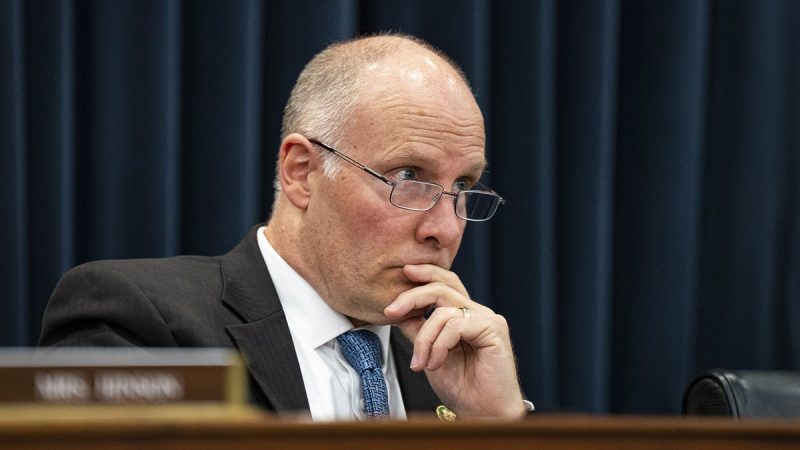
Top Republican demands ‘costs’ for China after it hacked Treasury Dept in year marked by CCP espionage
China was behind a ‘major’ hack of the Treasury Department, the Biden administration said Monday, gaining access to unclassified documents and the workstations of government employees.
After a year fraught with hacking across all government agencies, China experts say it’s time to get serious about thwarting adversarial espionage.
‘The latest intrusion should not come as a surprise. For too long, the CCP has paid no real price for its increasingly aggressive intrusions into our homeland and networks,’ Rep. John Moolenaar, R-Mich., chairman of the House China Select Committee, told Fox News Digital.
‘It is time for Congress and the incoming Trump administration to impose escalating costs to deter the CCP.’
It’s not yet clear what exactly the hackers were seeking. The Treasury houses sensitive data about global financial systems, as well as estimates about China’s ailing economy. It also carries out sanctions on Chinese companies, as well as those aiding Russia in the war on Ukraine.
‘Even though the Treasury says the Chinese only got unclassified documents, we’ve got to remember that a hack of the Treasury sends shudders not just across the U.S., but across the world. Countries rely on the dollar, can you rely on the stability of the American financial markets?’ said China expert Gordon Chang.
Treasury was notified by a service provider of the breach on Dec. 8, and all systems affected were taken offline. China called the accusation that it was behind the act ‘baseless’ and said it ‘consistently opposes all forms of hacking.’
Despite China’s denial, the Treasury insisted a Chinese state-sponsored actor was behind the attack. Chang suggested Xi may have intended to get caught to send a message to the world.
‘We can’t actually exclude the possibility that the Chinese wanted to be caught because they wanted to actually create uncertainty around the world. They wanted to show the world that the United States is not safe — their networks are not good, the Chinese control them at will.’
Just weeks ago, President-elect Donald Trump seemed to be making an attempt to smooth over relations with China with an invitation to President Xi Jinping for his inauguration. But the recent hacking attempt suggests such efforts might be futile, according to Chang.
‘American presidents had tried preemptive concessions to China for decades. They’ve not resulted in benefits to us. And the reason is because the Chinese don’t reciprocate them,’ he said.
Earlier this year, Commerce Secretary Gina Raimondo’s communications were intercepted by Chinese intelligence, just as she was making determinations about new export controls on semiconductors and other key technology. The same hacking group also targeted officials at the State Department and members of Congress.
And the Treasury hack comes just as the Biden administration is grappling with one of China’s biggest attacks on American infrastructure in history, dubbed Salt Typhoon.
A Chinese intelligence group infiltrated nine U.S. telecommunications giants and gained access to the private text messages and phone calls of Americans, including senior government officials and prominent political figures.
The Salt Typhoon hackers also gained access to an exhaustive list of phone numbers the Justice Department had wiretapped to monitor people suspected of espionage, granting them insight into which Chinese spies the U.S. had caught onto and which they had missed.
The onslaught of cyberattacks has prompted frustration — and raised questions — about cybersecurity and why America’s adversaries are able to penetrate U.S. government systems with regularity.
‘The American people should be angry at the Chinese for hacking us, but they should be outraged at our political leaders because our political leaders know what’s going on. They have the means to protect us, and they have decided not to do so,’ said Chang.
Last week, incoming national security adviser Rep. Mike Waltz, R-Fla., suggested the U.S. needed to not only play defense but go on offense to the attacks.
‘We have to stop trying to just play better and better defense,’ he told Fox Business’ Maria Bartiromo. ‘We need to start going on offense.’
‘We need to start imposing consequences for those that are stealing our technology, spying on us, and now with a program called Volt Typhoon, is putting cyber time bombs on our critical infrastructure, like our water, our grid and our ports,’ Waltz said.
‘America can’t afford to just play defense on cyber anymore. We’ve got to go on the offensive and impose COSTS on those who are stealing our technology and attacking our infrastructure,’ he added on X.
Trump has proposed a 60% tariff on U.S. imports from China. Last month, the Biden administration issued its most stringent crackdown yet on China’s semiconductor industry with the intent of hindering its ability to develop AI for modern military uses.

